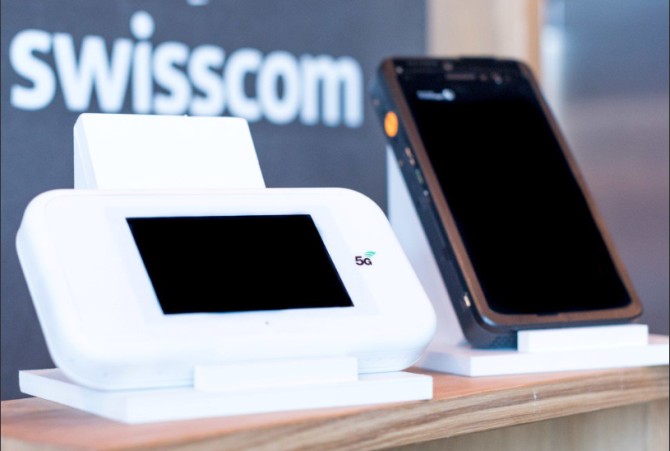While everybody is talking about the vast potential of 5G, the uptake of such services in India depends on operators getting around 100 Mhz 5G spectrum. At the reserve price proposed by Trai, getting this spectrum will cost a telco around Rs 490 billion.
Which amount could be difficult for operators to mop up, given the financial stress they are undergoing, says Kiran Rathee.

Imagine travelling in a car being driven by somebody sitting in a remote office or getting medicines or first aid delivered through autonomous drones!
It may look like a science fiction movie but all of this will be a possibility by 2020 when 5G technology services roll out in India.
Swedish telecom gear maker Ericsson has developed quite a few use cases involving remotely-connected cars and homes, as well as autonomous drones and virtual reality for the Indian market.
The company, which has been allocated 100 Mhz of experimental spectrum in 3.5 GHz band (used for 5G services), showcased live demonstrations on 5G use cases during the recently-concluded India Mobile Congress.
The company has been working on developing use cases around 5G at its Centre of Excellence in IIT Delhi.
The department of telecommunications had awarded 100 Mhz spectrum for the centre in July for a period of three months and an extension for another three months has already been granted.
In fact, Sharang Kaul, a postgraduate student of IIT Delhi, was remotely driving the car at IIT Delhi while sitting at Aerocity during the IMC.
He was doing this with the network set up by Ericsson.
Ericsson's 5G Centre of Excellence was established earlier this year at IIT Delhi to work on evaluating benefits of 5G technology in areas like rural connectivity, connected healthcare, industrial automation, public safety, video surveillance, energy and agriculture, among others.
According to an Ericsson report, 5G-enabled digitisation revenue potential in India will be $27.3 billion by 2026.
Indian operators can generate additional revenue of $13 billion if they take up roles beyond being connectivity and infrastructure providers to become service enablers and service creators.

Ericsson feels the largest opportunity will be seen in sectors like manufacturing, energy and utilities followed by public safety and healthcare.
Some of the 5G use cases that could be implemented using the unique features of 5G technology include industrial control and automation, autonomous driving, safety and traffic efficiency services, hospital applications and medical data management.
While everybody is talking about the vast potential of 5G, the uptake of such services in India depends on operators getting around 100 Mhz 5G spectrum.
However, at the reserve price proposed by Telecom Regulatory Authority of India (Trai), getting 100 Mhz spectrum of 5G spectrum will cost a telco around Rs 490 billion.
This amount could be difficult for operators to mop up, given the financial stress they are undergoing.
Industry watchers feel getting a huge amount of capital to fund spectrum buys is going to be a herculean task for operators.
Given the debt-laden balance sheets, banks are not likely to lend more money to them.
As Indian banks are unlikely to offer funds to telecom operators for spectrum auction, they have to look at foreign banks and financial institutions to raise money.
A steering committee, headed by Stanford University professor AJ Paulraj, too, feels that 5G deployment strategy in India faces conflicting considerations.
"If we go for early adoption, the equipment is likely to be more expensive and being early, it will also be glitchy needing costly maturing.
"On the other hand, early adoption will fast-track the country's embrace of 5G's benefits and increase opportunities to develop innovative use cases that support Indian needs.
"Balancing these conflicts needs study," the committee said in its report.












